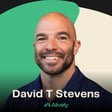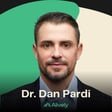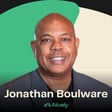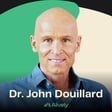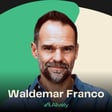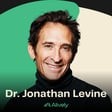
How Regenerative Agriculture Can Save Us with Ric Scalzo - E56
Modern life disconnects us from the very rhythms and principles that allow nature to thrive, leaving us depleted, stressed, and searching for lasting health. We struggle to find vitality despite our best efforts, overwhelmed by confusing health advice and with uncertainty about the true quality of our food and environment. In this episode, we explore how taking lessons from regenerative agricultural practices and aligning with nature’s principles can restore our bodies, build resilience, and protect the environment.
Ric Scalzo is the founder of Gaia Herbs and a leading advocate for regenerative agriculture and holistic health. Over three decades, he grew Gaia into a well-recognized name in natural wellness before selling the company, later establishing an institute for botanical research at the Southwest College of Naturopathic Medicine. Now based in Costa Rica, he operates a regenerative organic certified farm and leads Kokora, a product line developed from medicinal plants grown on his land. Scalzo’s work includes advising governments, such as El Salvador, on the national adoption of regenerative organic farming practices.
“We probably have enough nutrition in our soils to provide us and provide our foods for thousands of years.” - Ric Scalzo
In this episode you will learn:
- What it means to live a regenerative life, guided by the operating principles of nature, and how these principles can inform both personal and business decisions.
- Ric's journey from founding Gaia Herbs to creating Kokor` and running a regenerative organic farm in Costa Rica focused on medicinal plants.
- The core philosophical and naturopathic principles Ric integrates into his health practices and leadership approach, including the healing power of nature and practicing prevention.
- Insights into the crucial connection between soil health, nutrient density, and the quality of the foods and supplements we consume.
- The lifestyle routines Ric uses to support healthspan, including movement, flexibility, stress adaptation, and aligning his sleep with natural light cycles.
- The role of social connection, compassionate leadership, and daily rituals in building resilience, reducing stress, and enriching overall wellbeing.
Resources
- Connect with Ric on Instagram: https://www.instagram.com/ricscalzo
- Learn all about Kokora: https://www.instagram.com/kokoralife
This podcast was produced by the team at Zapods Podcast Agency:
https://www.zapods.com
Find the products, practices, and routines discussed on the Alively website:
https://alively.com/




